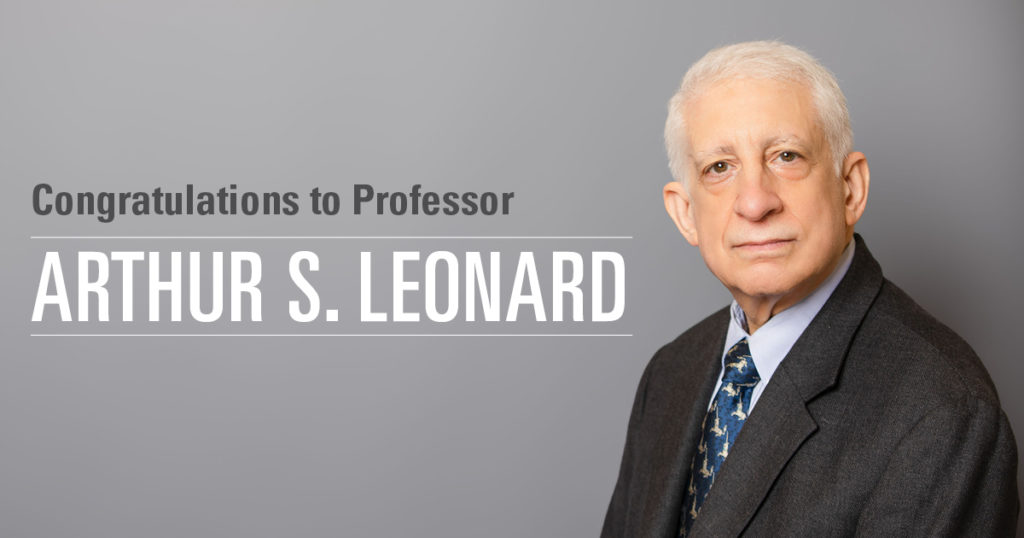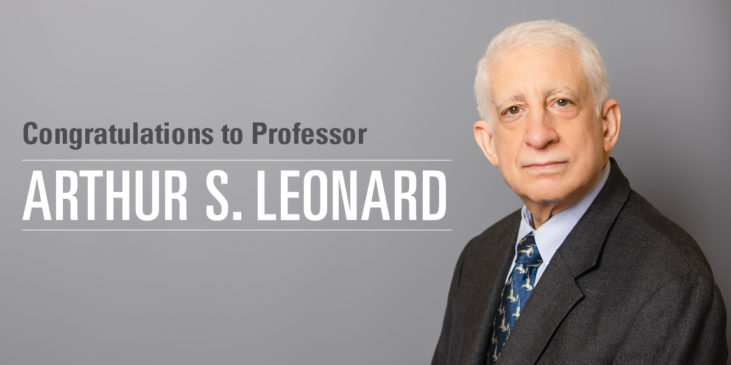
Gay City News, New York City’s weekly LGBTQ+ newspaper, won first prize in the New York Press Association Better Newspaper Contest for coverage of crime, policing, and courts. The award included Professor Emeritus Arthur S. Leonard’s article “Supreme Court Unanimously Rules for Catholic Social Services in Foster Care Policy Dispute” about the Fulton v. City of Philadelphia case. The prestigious award considers approximately 4,000 entries yearly and is judged by members of another state press association. Professor Leonard serves as a contributing writer for Gay City News and regularly offers his insight on pressing legal matters facing the LGBTQ+ community.
The award—which credits Professor Leonard alongside Matt Tracy and Tat Bellamy-Walker—makes special mention of the paper’s ability to navigate the thorny issue of justice, noting that it “can be easy to fall into the trap of editorializing or slanting reportage of politically charged crimes or legal stories, particularly for a specialty newspaper that represents a particular community impacted by those stories.” Instead, Gay City News “[reports] the facts of important stories in a clear, accurate, and unbiased manner.”
Professor Leonard has a long history of writing about LGBTQ+ issues. Since 1980, he has edited the LGBT Law Notes newsletter, published by the LGBT Law Foundation of Greater New York, the educational arm of the LGBT Bar Association of Greater New York (of which Professor Leonard was the founding president in 1984). The newsletter is geared toward legal scholars and lawyers, and he additionally writes in a variety of publications aimed at educating LGBTQ+ readers about legal issues affecting the LGBTQ+ community, including two monthly articles in Gay City News.
Professor Leonard pays special attention to U.S. Supreme Court cases affecting the LGBTQ+ community. Mentioned in the Gay City News’ first-place prize is Professor Leonard’s assessment of the Fulton v. City of Philadelphia case. Fulton v. City of Philadelphia is “particularly important,” he says, “because it deals with the circumstance when a religious institution may be required not to discriminate in services it is providing to the public regarding sexual orientation.” The case looked at a foster care service run under contract with the City by Catholic Social Service (CSS) of Philadelphia. The City of Philadelphia wanted CSS to agree not to discriminate against LGBTQ+ would-be foster parents, but CSS refused. Lower federal courts ruled in favor of the City, but the Supreme Court reversed the ruling.
“The question of whether religious objectors can refuse to provide services to LGBT people is an ongoing issue of controversy,” Professor Leonard says, and it’s “made even more pointed by Supreme Court decisions recognizing a right of same-sex couples to marry and that laws banning discrimination because of sex also apply to discrimination because of sexual orientation.”
The issues Professor Leonard covers will continue to be critical, and his work writing to legal professionals and readers outside the legal profession alike ensures clear, accessible information about a vital community—one that continues to advocate for broader rights in American society.

